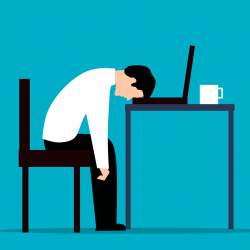To provide the best experiences, we use technologies like cookies to store and/or access device information. Consenting to these technologies will allow us to process data such as browsing behaviour or unique IDs on this site. Not consenting or withdrawing consent, may adversely affect certain features and functions.
The technical storage or access is strictly necessary for the legitimate purpose of enabling the use of a specific service explicitly requested by the subscriber or user, or for the sole purpose of carrying out the transmission of a communication over an electronic communications network.
The technical storage or access is necessary for the legitimate purpose of storing preferences that are not requested by the subscriber or user.
The technical storage or access that is used exclusively for statistical purposes.
The technical storage or access that is used exclusively for anonymous statistical purposes. Without a subpoena, voluntary compliance on the part of your Internet Service Provider, or additional records from a third party, information stored or retrieved for this purpose alone cannot usually be used to identify you.
The technical storage or access is required to create user profiles to send advertising, or to track the user on a website or across several websites for similar marketing purposes.
 The pandemic has not led to mass unemployment as many feared, but has instead driven wider shifts that have increased employment among younger women, but pushed many men and older workers out of the labour market altogether, according to new research. (more…)
The pandemic has not led to mass unemployment as many feared, but has instead driven wider shifts that have increased employment among younger women, but pushed many men and older workers out of the labour market altogether, according to new research. (more…)






 Research carried out by
Research carried out by 
 New research, ‘
New research, ‘
 A new report ‘
A new report ‘
 A flexible work culture is a key consideration for the majority of young workers when choosing a job, with over half (53 percent) of 18-34-year-olds claiming that talented young people won’t join companies that are inflexible about the way their people choose to work.
A flexible work culture is a key consideration for the majority of young workers when choosing a job, with over half (53 percent) of 18-34-year-olds claiming that talented young people won’t join companies that are inflexible about the way their people choose to work. 
 British workers took the seventh lowest number of sick days in Europe last year, according to new
British workers took the seventh lowest number of sick days in Europe last year, according to new 




 Programmes aimed at supporting employees’ health and wellbeing can also benefit their social relationships and reduce bullying, according to a new study by researchers from the
Programmes aimed at supporting employees’ health and wellbeing can also benefit their social relationships and reduce bullying, according to a new study by researchers from the 
 New research has highlighted concerns over the treatment of staff in the world of hybrid work. The
New research has highlighted concerns over the treatment of staff in the world of hybrid work. The 
 The
The 
 More than half of young professionals (those aged 16-34), feel burnt out right now, according to new research exploring experiences of burnout pre and post pandemic from people analytics company,
More than half of young professionals (those aged 16-34), feel burnt out right now, according to new research exploring experiences of burnout pre and post pandemic from people analytics company, 






